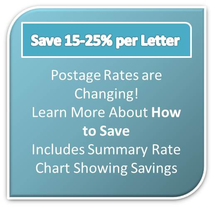Tis the Season to Shred & Scan
Yes, it’s another New Year.
We just had a real estate client go thru and purge old records and they ending up sending us 29 boxes for shredding. This is not an unusual event. 
Sorting through your records to determine when they can be destroyed and then dealing with the accumulated material is a tedious task if the process is not setup for automatic action. In most cases you can decide what the appropriate retention time is for each type of document and by marking as assembled you will know immediately when the time for destruction is reached. Essentially once you start the process you will have one year's worth of material to set aside each year while having one year (the expired collection) to be destroyed. This makes a process, even if it is manual, that is manageable and which should not over tax your people or resources.
Consider Scanning:
The opposite of shredding is Scanning. Another alternative if you want to recover the space or are moving your business. Scan other business records that may be lingering and taking up unwanted space – in the case of the referenced Realtor, cleaning out an office filled with paper meant turning that into $500 in monthly ongoing revenues by renting it to an Agent. For most organizations filing space can be some of the most costly and least productive area of your office.
Scanning strategies…Making next year’s purge easier the easy way – once you implement a scanning and document management solution like our DocUcapture Service - document retention becomes easy – you can now put a rule on your electronic file cabinet to automatically send expired documents to the recycle bin once they have reach their expired retention date.
Implementing scanning at one time was a challenging process. It required specialized equipment, training and specialized software. With the many advances which have come with integrated scanning on many types of office machines, both small and large it is now a pretty simple process to start. As knowledge is gained it can become more sophisticated and integrated as you work with it.
Software solutions are much more varied, often integrated into line of business applications or available through out sourced solutions such as DocUcapture. With a hosted service like this the issues of software, servers, storage and maintenance are handled as part of solid systems shared across several users which helps to keep costs down. It also removes much of the burden of IT resources since the provider (in this case Leppert) maintains the systems for clients to use.
The result.
No more manually sorting thru paper files or getting a hernia moving piles of bankers boxes. Less risk for your files, and much easier compliance when dealing with regulators.
Some key reminders –
Accounting records needed to be kept for 7 years
In the case of the Realtor, non-financial data they only had to keep for 5 years (RECO requirement)
Certain organizations or associations will define how long to keep records.
Tou may determine what is best practices for you ie financial planners may keep data much longer, for as long as a client is with them.
Doctors may be mandated to keep a certain time ie a Pediatrician, may have to keep records even if not a client for 20 or more years.
Most organizations will establish their own client interface standards which may have a longer or shorter duration depending upon the types of client relationships they enjoy.
The best part of the proper document strategy is that once it is set and people know what it may be, the maintenance is much simpler as the decision on what to keep and for how long is set. The decision for when to destroy is set and just has to be followed by those charged with creating and storing documents.
One caution
A major corporation records manager advised me of one problem he encountered within their organization that it took a bit of work to over come. He found that there was a tendency to just keep electronic records on hard drives (backed up through their standard IT systems) and since this space was fairly inexpensive there was a sense that they could just keep adding data and not delete. He was finally able to convince people that this was a risky strategy and that they should not keep records that there was no regulatory or business reason to hold them. The potential liability and the accumulating costs were higher than the inconvenience of the deletion process. This is an easy trap for any business large or small to get caught into. Take the time to clean records regularly through an organized process.
Not sure where to start?
Contact us for a free Scan Assessment – we’ll follow the paper flow and see where it may make sense to capture these or to avoid printing in the first place.
We are skilled at finding the Digital Flip-Flops
- you get an invoice in electronically in PDF which is a common process.
- Then first thing you do is turn it back to paper by printing it.
- Later you decide to make it electronic again and scan it back to PDF.
Sometimes there are several more steps in the Flip Flop.
If that sounds like wasted effort all round you may consider an more automated approach like electronic AP processing. We can help you find these kinds of process time wasters and provide suggestions on how to eliminate them.
Choose a scanning or shredding vendor that is going to treat your info with due care.
Leppert is proud to have been innovating in this field for over 25 years and is Reliability Certified by the Government of Canada. Leppert issues a certificate of destruction upon completion of each shredding project to provide proof of destruction for each client.
The year is new. Now is the best time to start your clean up for the end of the year.



